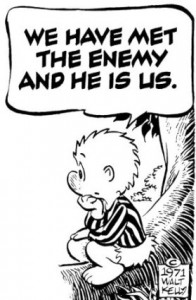One of the tough jobs we have is that so many people have been led to believe that legalization means chaos, when in fact it’s just the opposite. This is where the LEAP message has been so effective, and it needs to be hammered home time and time again to reach so many of those who are afraid of legalization.
James P. Gray has an excellent OpEd: Ballot Measure Is Way to Properly Police Pot
Our marijuana policy must change in order to achieve the following goals:
- Reduce marijuana consumption by children.
- Stop or reduce the violence that accompanies the growing and distribution of marijuana.
- Stop or reduce the corruption that accompanies the growing and distribution of marijuana.
- Stop or reduce crime both by people trying to get money to purchase marijuana and by those under its influence.
- Reduce the harm to people who consume marijuana.
- Reduce the number of people we must put into our jails and prisons.
He goes on to list a number of advantages of a legalized system (putting street drug dealers out of business, improving purity, etc.), and ends with:
Under this initiative, all crimes committed by people under the influence of marijuana would still be prosecuted, just like we do today with alcohol-related offenses. Holding people accountable for their actions, instead of what they put into their own bodies, is a truly legitimate criminal justice function.
Interestingly, also at the Sac Bee and following the same general line of thought is Paul Armentano’s Prohibition of pot feeds lawlessness
This absence of state and local government controls jeopardizes, rather than promotes, public safety.
For example: Prohibition abdicates the control of marijuana production and distribution to criminal entrepreneurs (e.g., drug cartels, street gangs, drug dealers who push additional illegal substances).
This is good stuff, and an excellent way to de-fang the crass attempts by some prohibitionist law enforcement lobby groups to claim the high ground on law and order. (see also LEAP’s appropriate press release: Cops & Judges Support Calif. Assembly Marijuana Legalization Votes on Tuesday — Law Enforcers Say Ending Prohibition Will Improve Public Safety)
….
Of course, one can hardly miss the opportunity to check out the comments on articles like this, and there is a pretty spirited comment section on the Armentano article, including one rather vocal prohibitionist named fsteph, who follows a truly bizarre line of thought that I’ve seen pop up more often lately — that libertarianism supports prohibition!
fsteph wrote on 01/10/2010 11:47:56 AM:
NewAmerican – Wrong again. As a lifetime libertarian I know what life, liberty, and the pursuit of happiness truly means. This new libertarianism is nothing less than a way of keeping our private lives from any moral scrutiny. A true libertarian resists the pull to privatize all morality — and instead argues that society can’t survive unless we all support the public good. We do not live alone in this society. Your actions, especially driving and working loaded (drugs and/or alcohol), can kill your coworker or an innocent bystander (medical research shows that it impairs memory and motivation). Public order is essential for liberty to exist. New libertarians conveniently ignore this truth.I’ll ask again, is law simply a flexible arrangement whereby we condone any behavior we find inconvenient to restrain?
I just don’t get it. Have these folks actually read anything about libertarian thought? Sure, I understand that some libertarians focus more on civil libertarianism and others focus more on financial libertarianism, but a self-proclaimed lifetime libertarian being… pro-prohibition? Unreal.

 In the article, Frank Hill invokes Pogo’s famous cartoon line “Yep, son, we have met the enemy and he is us.†And it’s true, but not in the way Hill envisions. Yes, people choose to do drugs, but that’s not us-as-enemy, that’s freedom. And yes, we could end drug problems by stopping all drug use, but that’s also not us-as-enemy, that’s fantasy.
In the article, Frank Hill invokes Pogo’s famous cartoon line “Yep, son, we have met the enemy and he is us.†And it’s true, but not in the way Hill envisions. Yes, people choose to do drugs, but that’s not us-as-enemy, that’s freedom. And yes, we could end drug problems by stopping all drug use, but that’s also not us-as-enemy, that’s fantasy. 